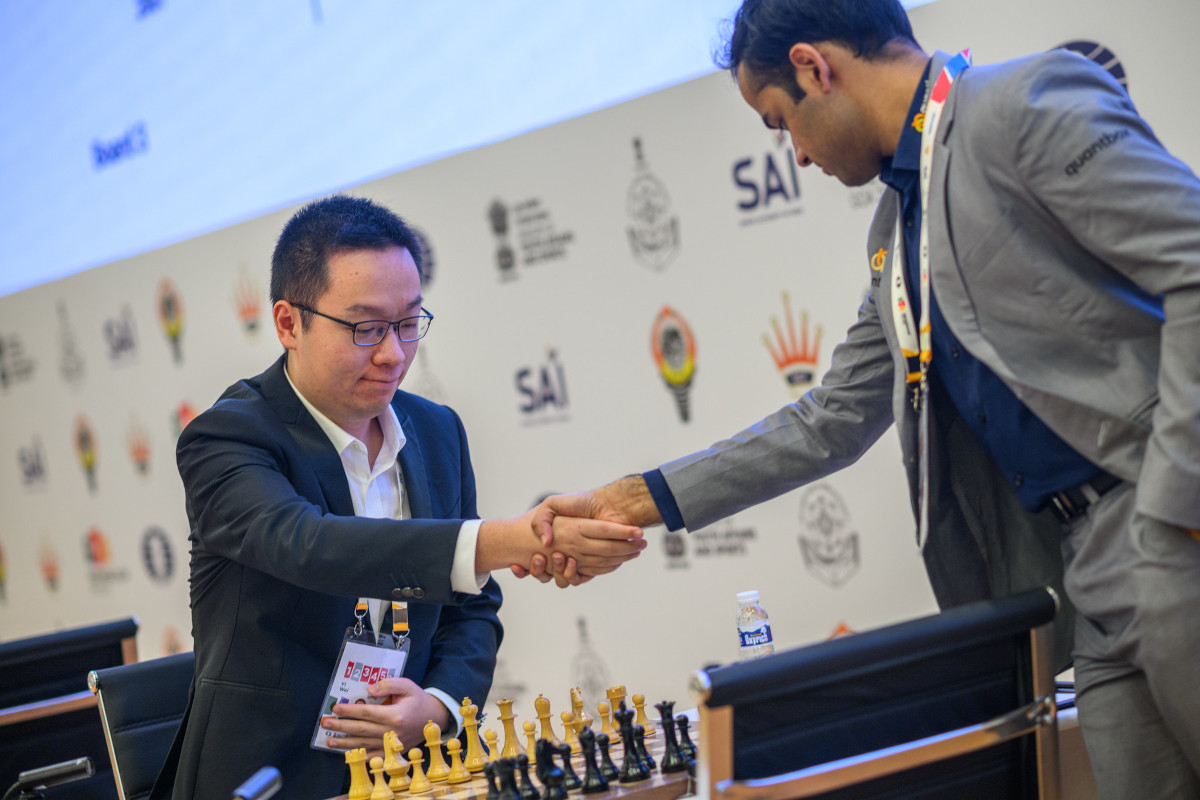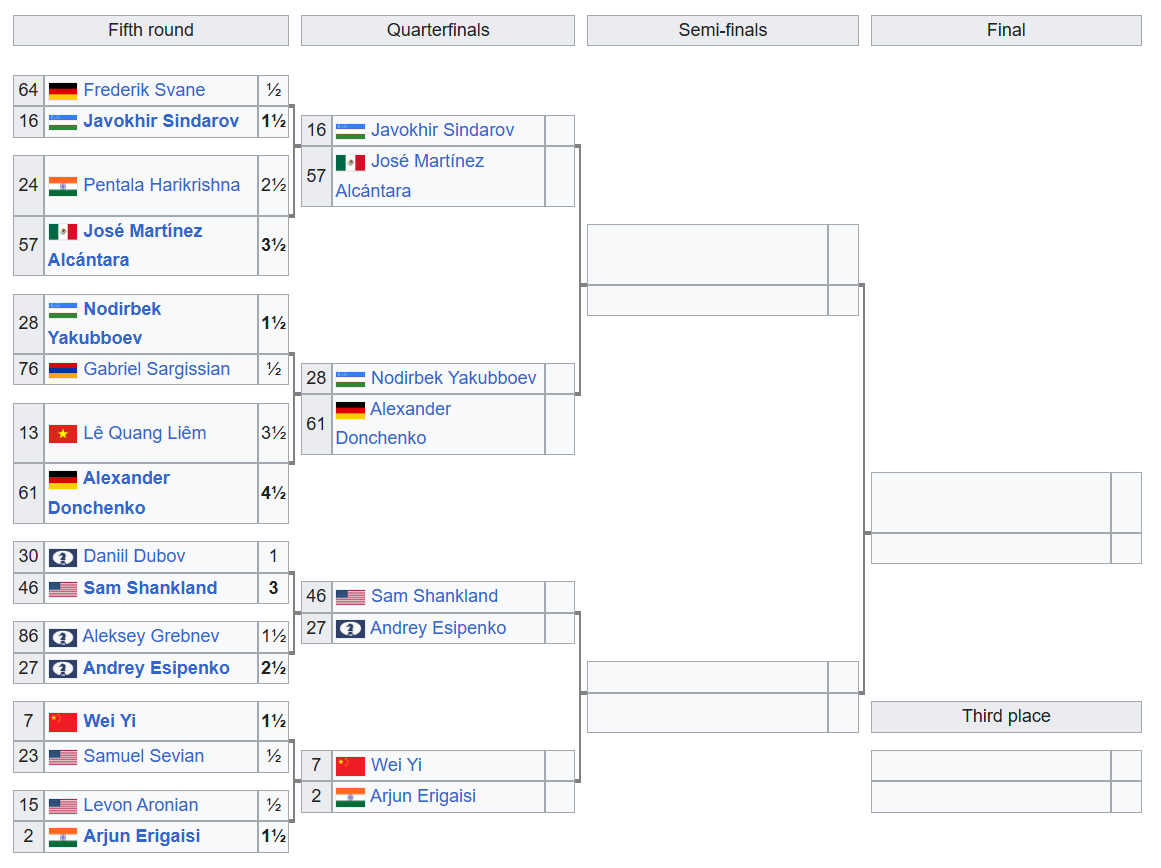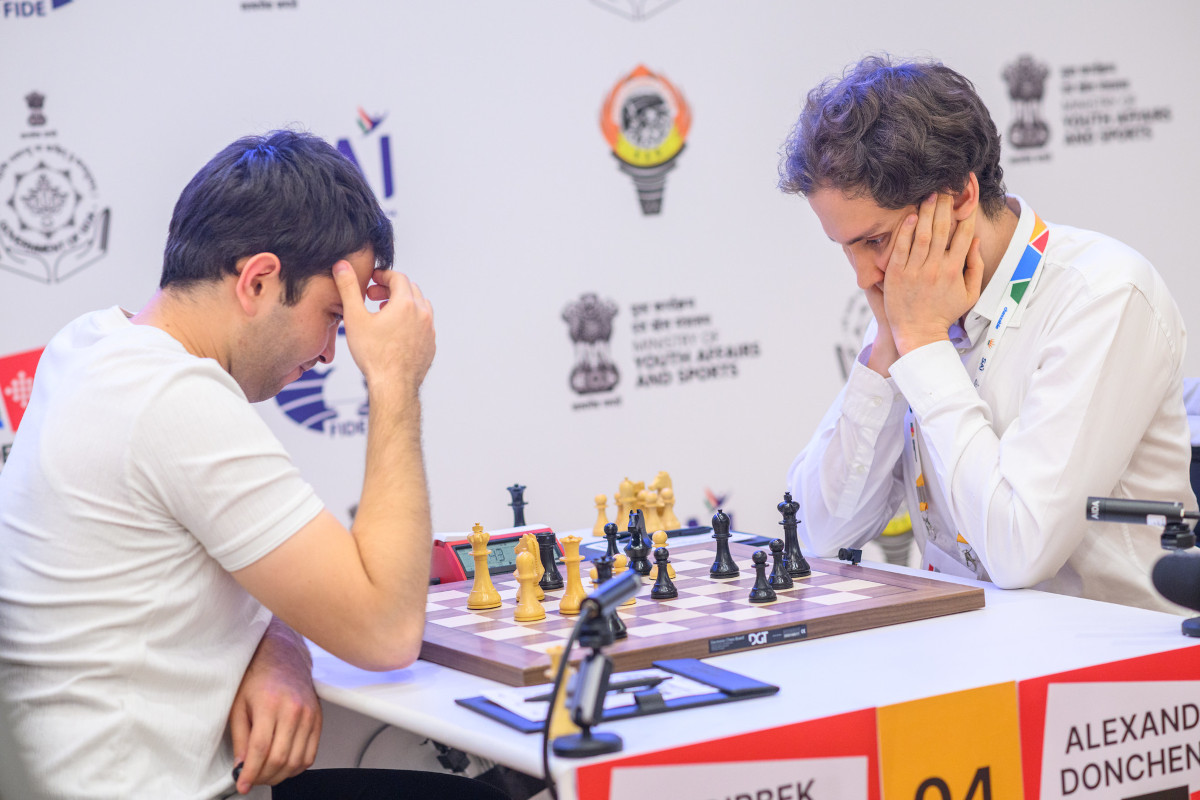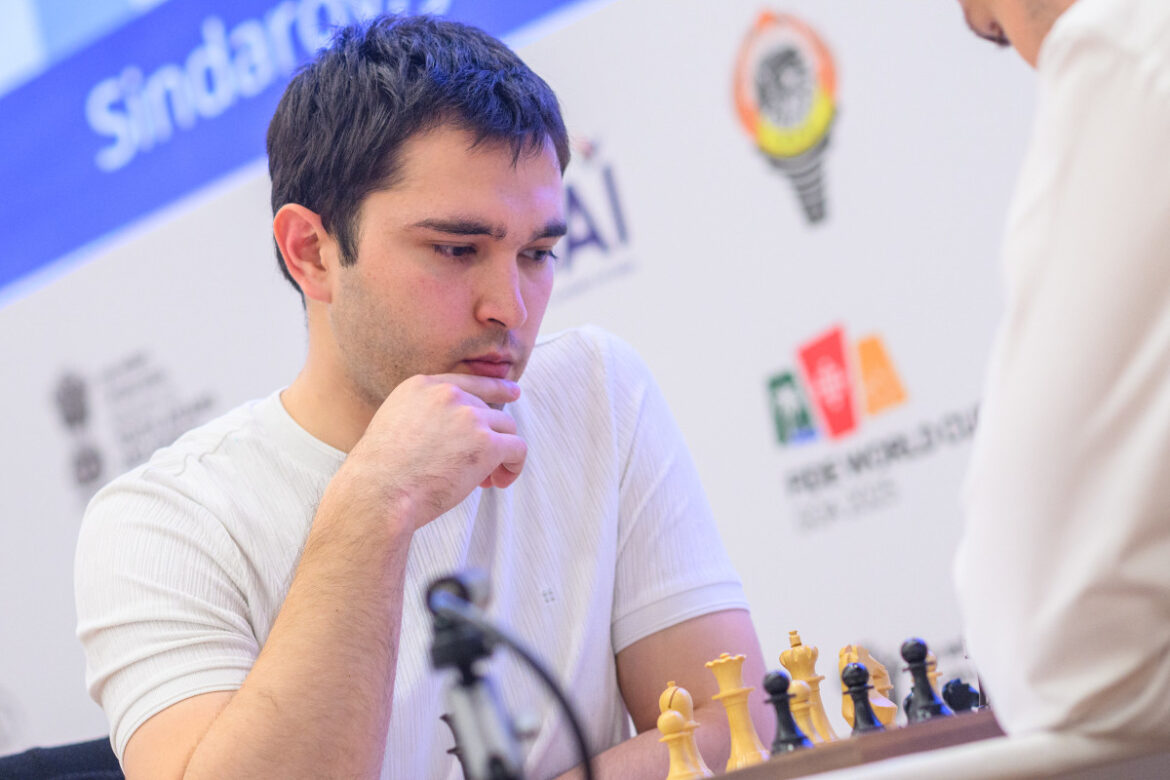Yakubboev crosses the 2700 Elo barrier in the live ratings list
Nodirbek Yakubboev was the only player to score a win as the quarterfinals of the FIDE World Cup began on Monday in Goa. Playing white against Alexander Donchenko, the Uzbek grandmaster prevailed in 44 moves after the German faltered early in an Anti-Grünfeld structure. Yakubboev’s victory means he now requires only a draw on Tuesday to secure a place in the semifinals. It also pushed him past the 2700 barrier in the live ratings list.
The remaining three quarterfinal encounters were drawn. Javokhir Sindarov came closest to joining his compatriot in the winner’s column, as he reached a favourable endgame – with equal material but more active pieces – against Jose Martinez. However, the Mexican managed to hold the draw after Sindarov incorrectly rejected to grab a pawn while in time trouble.
In today’s fast-paced chess world, especially online, where blitz and rapid games dominate, the traditional approach of grinding through lines of opening theory can feel overwhelming, and even unnecessary. The real challenge? Striking the right balance in your opening preparation. How deep should you go? Where do you stop? This course is built on the timeless wisdom of my legendary coach, Chebanenko, who designed opening repertoires for his “lazy” students – not lazy in attitude, but smart in approach. His philosophy? Don’t memorise. Understand.
The other two matches, Wei Yi v. Arjun Erigaisi and Sam Shankland v. Andrey Esipenko, remained balanced throughout and ended peacefully after 30 and 38 moves, respectively.

Wei Yi and Arjun Erigaisi | Photo: Michal Walusza
Yakubboev’s win continues a remarkable rise for the 23-year-old from Tashkent. Although he had never previously held an official rating above 2700, he has long shown his potential through impressive achievements:
- He played board two for Uzbekistan’s gold-medal team at the 2022 Olympiad, scoring 8/11 with a 2759 performance
- He won the 2023 Qatar Masters ahead of the likes of Magnus Carlsen, Hikaru Nakamura and Gukesh Dommaraju (he was the 19th seed in that event)
- Earlier this year, he claimed the Rubinstein Memorial with an undefeated 6½/9 score against strong opposition.
With strong chances of reaching the Candidates, Yakubboev is now one of the key figures in the race for qualification.

Nodirbek Yakubboev and FIDE Press Officer Charlize van Zyl | Photo: Michal Walusza
In this insightful video course, Grandmaster David Navara shares practical advice on when to calculate deeply in a position — and just as importantly, when not to.
Free sample video: Introduction
Free sample video: Invisible moves

Uzbekistan might have celebrated a second victory on Monday had Sindarov made the most of a promising position after Martinez’s inaccurate 32…Bb7, when 32…Kf7, defending the pawns on e6 and f6, would have been more precise.
Following 33.Ng4, which targeted the f6 and h6 pawns, Black replied with 33…f5. Sindarov spent almost 2 minutes (he had 7 minutes on the clock) before opting for the safer 34.Ne5, centralising the knight instead of capturing on h6.
If one skill decides more games, it’s calculation. Openings fade, plans change – but seeing clearly, comparing lines, and choosing with confidence wins points. In this course GM Ganguly turns calculation into a trainable skill with a structured path for any level. You won’t just solve tactics; you’ll learn how to think: where to start, which branches to explore, when to stop, and how to keep a crystal-clear mental board under pressure.
Free video sample: Introduction
Free video sample: Forcing moves
While engines show that 34.Nxh6 was objectively stronger, converting the resulting complications would have required precise calculation in time pressure. Following this decision, it did not take long for the game to be agreed drawn.

Javokhir Sindarov playing white against Jose Martinez | Photo: Michal Walusza
Yakubboev 1-0 Donchenko
Analysis by Johannes Fischer
Picture this: you’ve outplayed your opponent move by move, you’re clearly better – and then the endgame slips into a draw, simply because you lacked the crucial theoretical knowledge. That is exactly where this course comes in. Without solid endgame skills, there’s no way forward. Rook endgames are most essential: they occur more often than any other type of endgame, and often make the difference between victory and half a point. If you master them, you’ll confidently convert your advantages into wins!
Free video sample: Introduction
Free video sample: Bodycheck

Nodirbek Yakubboev facing Alexander Donchenko | Photo: Michal Walusza
All games – Quarterfinals
Replay games from all rounds at Live.ChessBase.com
EXPAND YOUR CHESS HORIZONS
Data, plans, practice – the new Opening Report In ChessBase there are always attempts to show the typical plans of an opening variation. In the age of engines, chess is much more concrete than previously thought. But amateurs in particular love openings with clear plans, see the London System. In ChessBase ’26, three functions deal with the display of plans. The new opening report examines which piece moves or pawn advances are significant for each important variation. In the reference search you can now see on the board where the pieces usually go. If you start the new Monte Carlo analysis, the board also shows the most common figure paths.
